How to Potty Train a Puppy
05.12.2020.
From the moment your new puppy arrives at your home, your life will be richer and happier. But training, especially potty training, should start as soon as possible. You wouldn’t want to have a dog that leaves a smelly mess all over the house. Potty training, or housebreaking, your dog is one of the first challenges you will have to face as a dog owner.
Taking on a new role as an owner can be pretty scary; there are hundreds of questions you need to answer and just as many decisions you have to make that will influence your new puppy’s development and character. But don’t worry, we are here to help!
If you follow these easy steps, you can be sure you will learn how to potty train your puppy fast, and pretty soon, your problems with puppy land mines will be over.
1. Consistency and routine
Puppies are similar to human babies in the sense that they love their routines. It is a great idea to start teaching them there is time for everything. Teach them that there is mealtime, playtime, and time when they should go out and do their potty business. Even if you don’t realize it, your puppy will pick up the signals and soon learn to adapt to different times. They will try to object and get you to adapt to them, but be consistent, and they will eventually learn. Take the following steps;
- Walk your puppy often - Take your puppy for a walk every two hours in the beginning. As a general rule, puppies can hold their bladders for 1 hour for every month they are old. A 3-month-old puppy can hold it for 3 hours.
- Pick a spot - Take your puppy to a specific spot that you chose to serve as a bathroom spot. Use a word like “Make” to remind them what they should do. Reward them with a treat if they do it.
- Involve treats - It is essential to involve treats in the learning process. That sort of training is called positive reinforcement. Give your puppy a treat immediately after they finish doing their business.
- Meal schedule - Making a meal schedule is important because it is more likely that their bowel movement will work on the same schedule. Make it as easy as possible, and observe how long it takes for your puppy to digest their food. Make adjustments based on your observations.
- Limit intake before bed - About 2 hours before you go to sleep, take their water bowl and remove it. This is a smart way to make sure your puppy doesn’t need any potty breaks during the night.
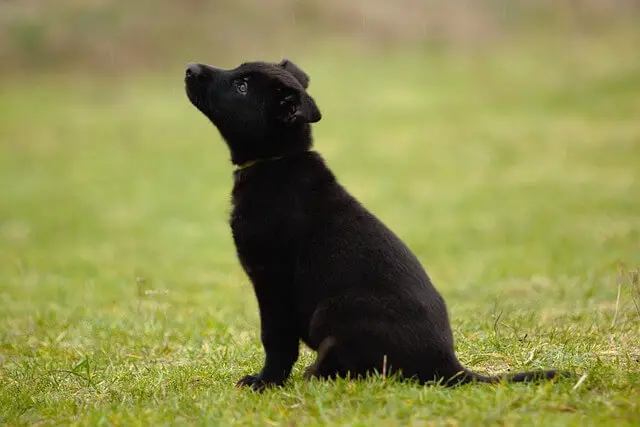
2. Supervision
As a new dog owner who is potty training their puppy, you must keep a close eye on their behavior. If you see them getting ready to do their business inside, react. If you know what you are looking for, those signs will be pretty clear. Take your puppy out for a potty break if you notice any of these signs;
- Scratching the door
- Restlessness
- Sniffing the floor
- Squatting
- Circling and sniffing
When you take your dog outside, keep them on a leash. Treat your yard as you treat your house. Don’t allow the puppy too much freedom until they are completely housebroken.
If you like these potty training tips, you will like these 8 Tips and Tricks for Puppy Socialization.
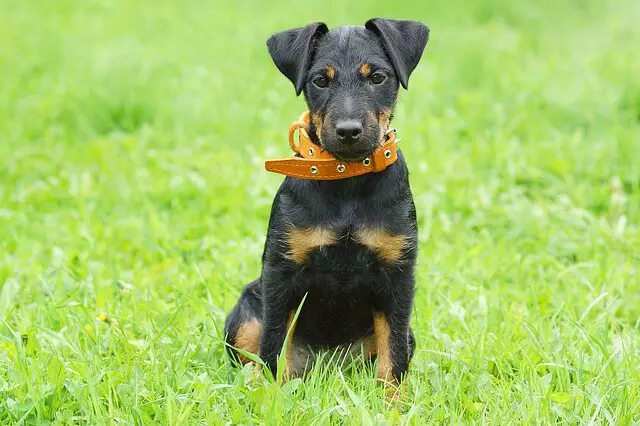
3. Restrictions
The sad reality is that we cannot spend all of our time with our dogs, no matter how much we want to do it. You cannot leave anything to chance while potty training your dog. That means you should prepare for the time you will not be at home. There are two possible ways you can do that.
- Crate training - Getting your new puppy used to a crate is always a good idea. Some think it is cruel to confine your dog, but it is also for their safety. If you restrict their movement, they are unlikely to get into trouble while you are away. Never use your puppy’s crate as a punishment, and make them feel happy and safe while they are in there. Upon your return, especially if you have been away for a couple of hours, take your puppy to do their business in the bathroom spot outside.
- Other confined space - If you don’t want to use a crate, you will have to restrict your puppy in some other way that is safe for them. That can be done by using a specific part of the house, like the bathroom, that will be confined with a secured removable fence. Confined space should be big enough for your puppy to lay down, but not big enough for them to want to do their business.
4. Incidents will happen
Keep in mind that puppies will not be potty trained in days. It is a process, and processes take time. You will surely notice your puppy making process, and even if there is a period where your puppy makes no mistakes for a week or longer, don’t get discouraged if they do their business in the house. Learn how to react and follow these potty training tips;
- Interruption - If you catch your puppy in the act, interrupt them and tell them command you would like them to learn, like “No” or “Outside.” Make sure you don’t yell at them and scare them because puppies are pretty sensitive and can get emotional scars. Take them out to their bathroom spot.
- Restrain yourself - A puppy that made an incident by making potty inside can be pretty frustrating, but control your emotions and don’t punish them. After they already did what they did, punishing them makes no sense because your puppy doesn’t understand what they did wrong. They will only get scared of you. You can do more harm than good, in this case.
- Clean - Frustrating as it may be, you should clean the messed up area. Puppies have a sensitive nose, and if they can smell that an area has urine or poo scent, they might want to relieve themselves again in the same spot.
Some puppies are faster at learning than others. Check out the most trainable dogs in the world.
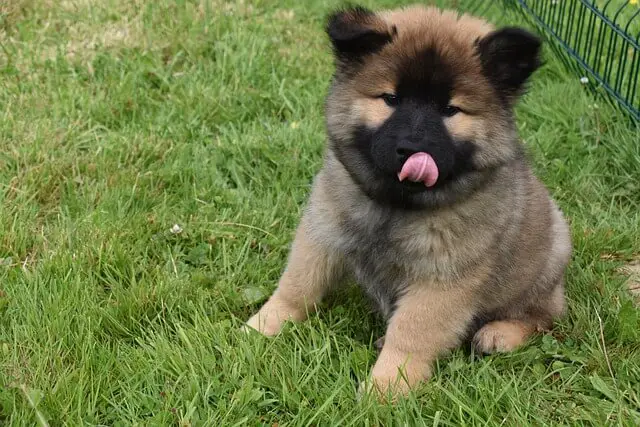
5. Planning is the key
The reality is that most of us have busy schedules, which make us leave our home for periods longer than 4 hours, which is when most of the potty training happens (when the puppy is 3 - 4 months old). If you know you will have to be out for longer periods, arrange for someone to take care of the puppy while you are away.
There are a couple of things you could do, like ask a neighbor, family member, or a pet sitter for help while you are away. You can get your puppy used to doing their business in a designated area covered with newspapers or special mats. Keep in mind that this will only slow down the potty training and create a preference for special surfaces.
We are aware that having a puppy requires time and if your schedule is packed, think about getting an older dog or postponing getting a puppy to a time where you will have more time to teach them things they need to learn.
World Dog Finder team

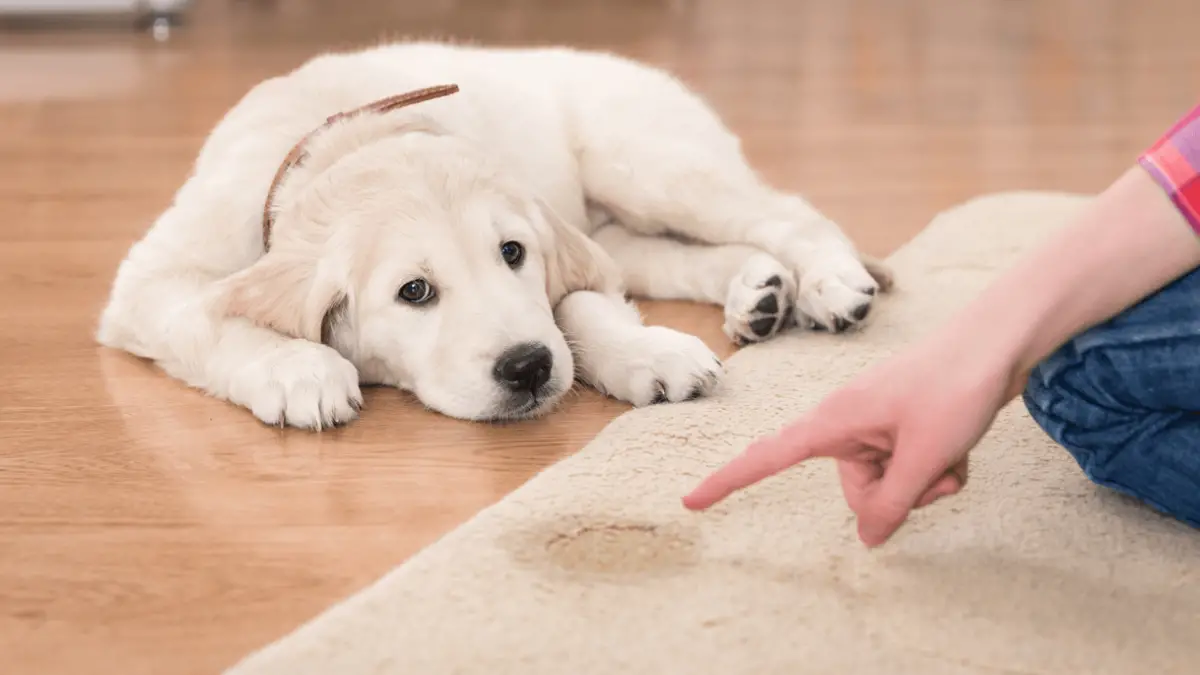
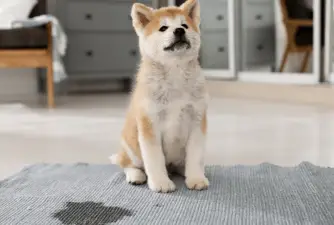
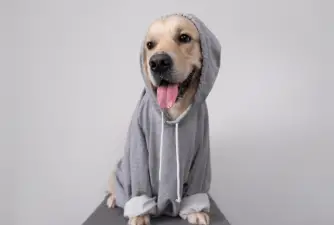
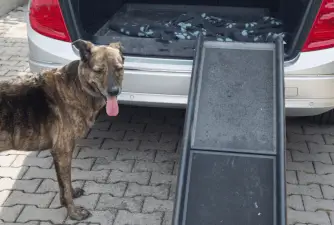
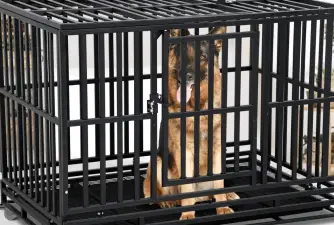

Share